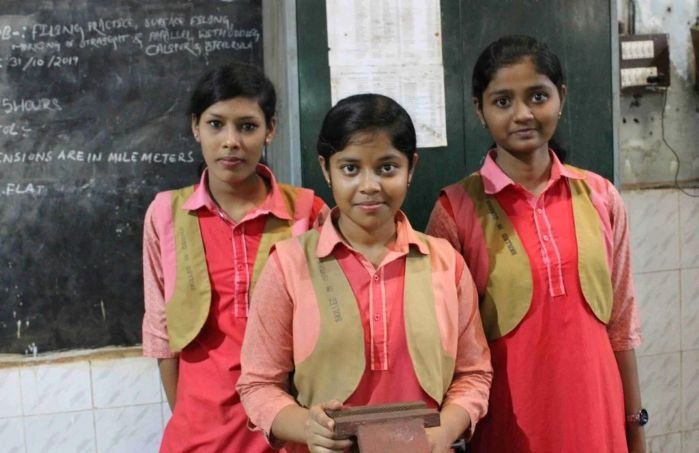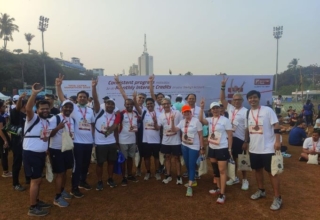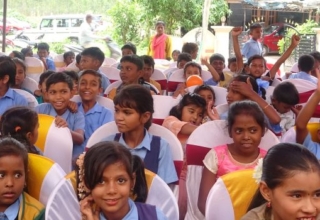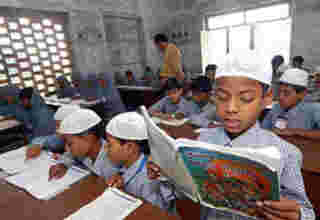
The section providing for 25% reservation for children belonging to disadvantaged children groups in private schools still not translating into reality says a review report
A REPORT compiled by a consortium of civil society groups shows that of the estimated 22.9 lakh seats available all over India under Section12(1)(c) of the Right to Education Act providing for 25% reservation for children from economically and socially disadvantaged sections in private unaided non-minority schools, roughly only 3.46 lakh seats were filled during 2014-15. This accounts for a fill rate of 15.12%. Now in its second edition, the report titled, ‘State of the Nation: RTE Section 12(1)(c) report’ and published annually was released on March 10 in New Delhi and was followed up with a panel discussion in which experts from the partner organizations (The RTE Resource Centre at Indian Institute of Management-Ahmedabad, Central Square Foundation, New Delhi Accountability Initiative of the CPR, New Delhi and Vidhi Centre for Legal Policy also from Delhi) illustrated the findings and what they convey
This year is a slight improvement from 3.2 lakh seats filled out of 21.8lakh available seats (14.66 percent fill rate) in 2013-14.The top-performing states in fill rate were Delhi (44.61percent), Rajasthan (39.26 percent), Tamil Nadu (37.75percent), Chhattisgarh (32.94 percent) and Uttarakhand (31.96 percent). The worst-performing states all had fill-rate less than 1percent- Andhra Pradesh (0 percent), Telangana (0.01percent), Mizoram (0.21 percent), Uttar Pradesh (0.79percent) and Odisha (0.97 percent).
In 2014-15, out of 2.17 lakh schools only 45,996 schools had taken at least one student under this provision. In 2013-14, there were 44,158 participating schools out of total 2.06 lakh schools. Nationally, Andhra Pradesh (0 percent), Telangana (0.01percent) and Mizoram (0.17 percent) had the lowest school participation while Delhi (51.84 percent), Tamil Nadu (51.24 percent) and Rajasthan (47.88 percent) had the highest school participation rate. The report also noted that for most of the states, there are significant disparities in the numbers recorded from different sources. For the purpose of analysis, the report referred data available in the public domain such as websites and documents of the education departments, data reported by the state governments to the union Ministry of Human Resource and Development, District Information System for Education (DISE), presentations by some state governments, numbers reported by governments on their education portal or in media, information received through RTIs to states, etc. Prof. Ankur Sarin, Faculty- Public Systems Group, Indian Institute of Management-Ahmedabad and one of the lead authors of the report says, “Across states like Delhi, Maharashtra, Gujarat, Rajasthan and Karnataka, civil society has played a critical role in improving the implementation of this provision. They have done so by disseminating information and creating awareness about this policy among beneficiaries, exchanging ideas and generating knowledge among other similar organisations through hubs and networks, supporting the intended beneficiaries in the grievance redressal process and advocating for changes in the policy through collaboration with the state bureaucracy, and public interest litigations.”
Ashish Dhawan, Founder and Chairman, Central Square Foundation, said, “Most of the states have either unclear rules or guidelines or are not implementing this provision. Awareness is still patchy, especially in rural areas. Once children enter the school system, provision of supporting and child tracking is almost non-existent.” Concurring with this, Dr. Ambrish Dongre, Senior Research Fellow at Accountability Initiative, Centre for Policy Research, and Fellow at Centre for Policy Research said, “Out of 1466.5 crore that states requested for Section 12(1)(c) implementation, only 250 crore was approved by the Centre. Only the 6 stats- Chhattisgarh, Gujarat, Karnataka, Odisha, Rajasthan and Uttarakhand- got any assistance from the Centre, indicating that the States need to do lot more”. He also added that “ensuring smooth flow of money from the state to the school is crucial for effective implementation.”
Yamini Aiyer director of Accountability Initiative is of the view that by holding mirror to the government the findings can help implementation agenda and awareness both agenda of the current initiative of the alliance.,









